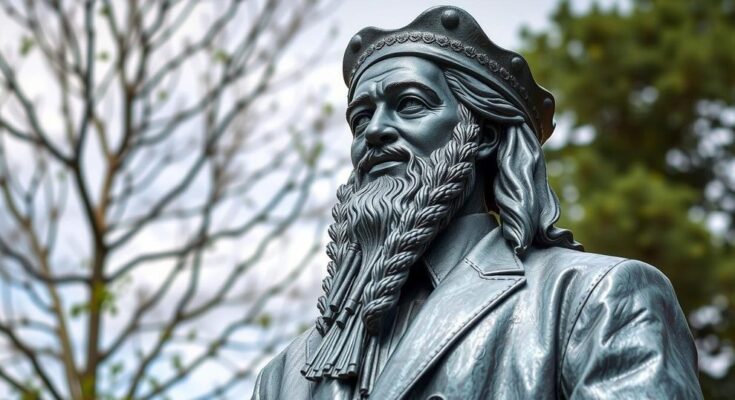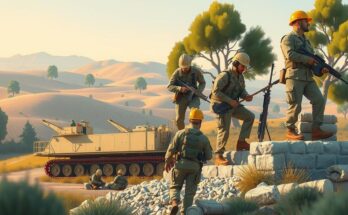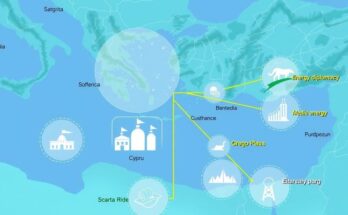The Central African Republic has erected a statue in honor of Yevgeny Prigozhin, reflecting its strengthened ties with Russia and gratitude for military support. Despite possessing abundant natural resources, CAR continues to struggle with severe poverty and instability, exacerbated by historical conflicts and leadership challenges. Russian military presence has been critical in providing safety for the government amid ongoing rebel threats, sparking interest from neighboring African states in similar military partnerships.
The Central African Republic (CAR) has recently commemorated the late Yevgeny Prigozhin, the founder of the Wagner Group, by erecting a statue in Bangui alongside that of his lieutenant, Dmitriy Utkin. This act signifies CAR’s enduring partnership with Russia, reflecting gratitude for the security support provided by Russian forces since their arrival in 2017. The statue, depicting Prigozhin in combat attire, underscores the military influence of Russia in the region, which has been pivotal in stabilizing the government and combating rebel factions.
CAR, despite its rich resource base, including diamonds and gold, has suffered from severe economic limitations and civil unrest, compounded by years of conflict stemming from political and ethnic tensions. The establishment of Russian military presence has been crucial for the safety of government officials and is part of a military-technical cooperation framework that grants Russia access to the country’s natural resources. The recent tragedy in August 2023, which claimed the lives of Prigozhin and Utkin, followed their role in a failed insurrection attempt in Russia.
CAR’s leadership, particularly President Faustin-Archange Touadéra, has been vocal about the benefits of Russian involvement, asserting that the presence of Russian military personnel significantly curbs violence from armed groups. In recent discussions, Touadéra expressed appreciation for Russia’s extensive assistance, contributing to his government’s efforts in fostering both security and economic recovery. There is growing interest in Russia’s security partnerships, especially among other African nations, which view military aid as a pathway to resolve persistent financial challenges without succumbing to foreign exploitation of their resources.
The history of CAR is fraught with challenges, including a series of dictatorial regimes since gaining independence in 1960 and subsequent civil wars, culminating in a lack of basic human development. The advent of Russian mercenary groups has profoundly altered the political landscape, granting stability in exchange for resource access. Nevertheless, local leaders emphasize the importance of self-reliance and regional collaboration to address internal security needs, highlighting the necessity for African nations to prioritize their sovereignty in military agreements.
The Central African Republic is endowed with significant natural resources yet faces extreme poverty and instability. The history of civil conflict, political coups, and poor governance has hindered its potential for socioeconomic development. Since 2017, the engagement of Russian military groups, particularly the Wagner Group, has been a pivotal factor in the country’s efforts to regain control from armed factions and establish a semblance of governance. This relationship has shaped CAR’s foreign policy orientation, aligning it more closely with Moscow against the backdrop of historical ties with France.
The unveiling of the statue for Yevgeny Prigozhin represents a deepening alliance between the Central African Republic and Russia, with significant implications for regional security and resource management. While this partnership appears to provide short-term stability for CAR, it raises concerns about long-term sovereignty and the implications of resource-for-security agreements. The ongoing dialogue among African leaders about self-sufficiency and regional cooperation emphasizes the need for finding solutions to internal conflicts without external dependencies.
Original Source: moderndiplomacy.eu




